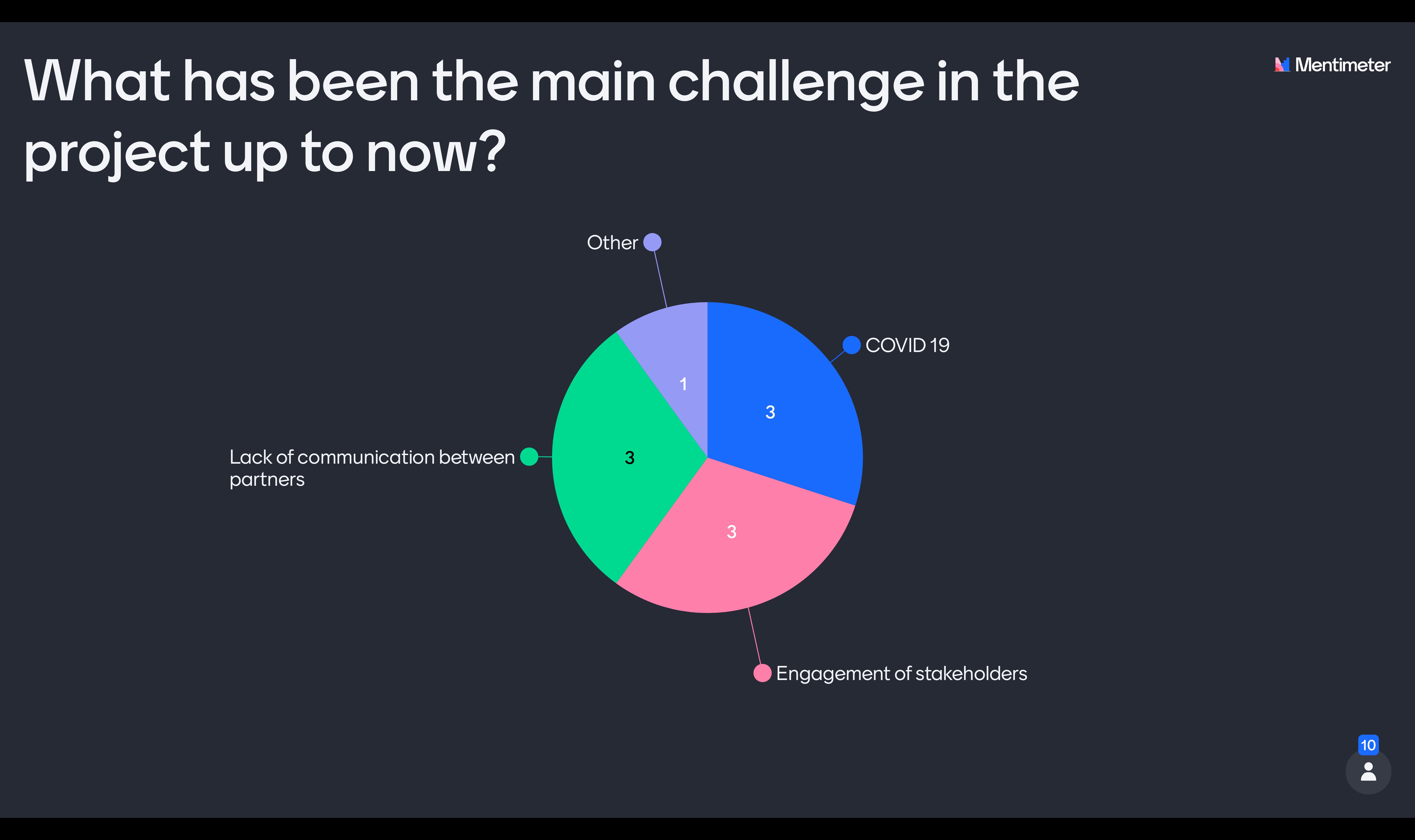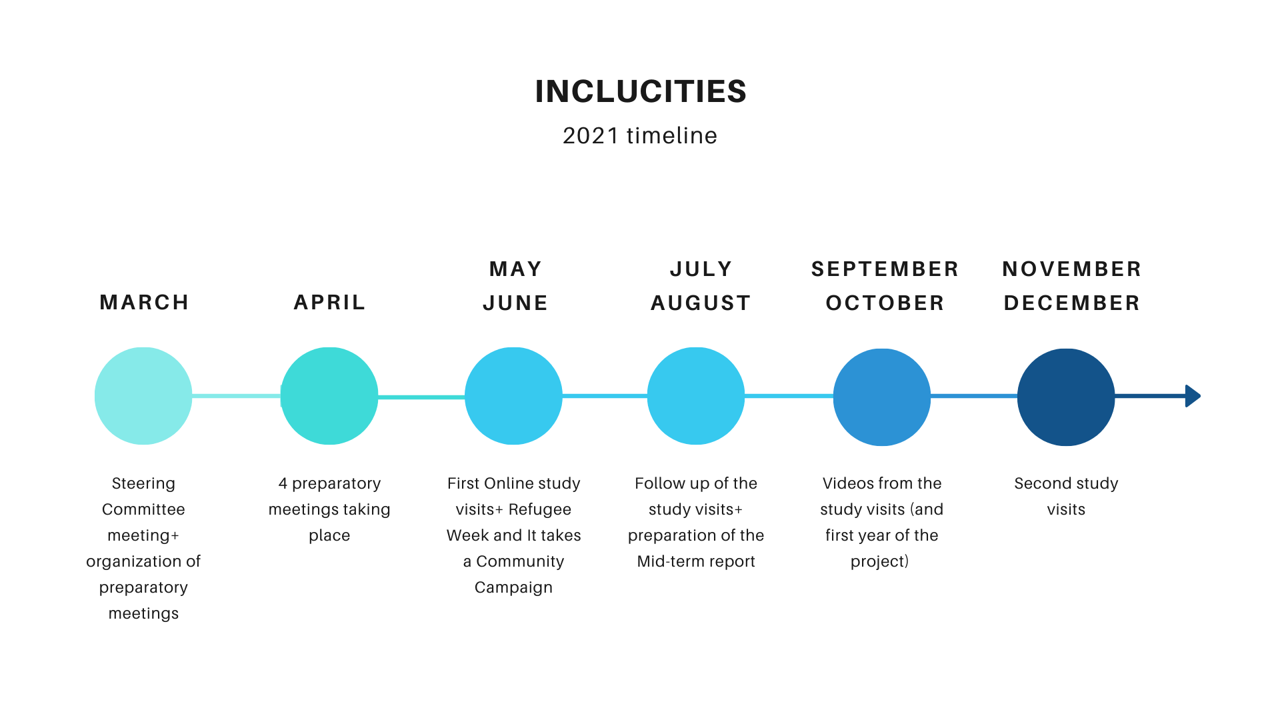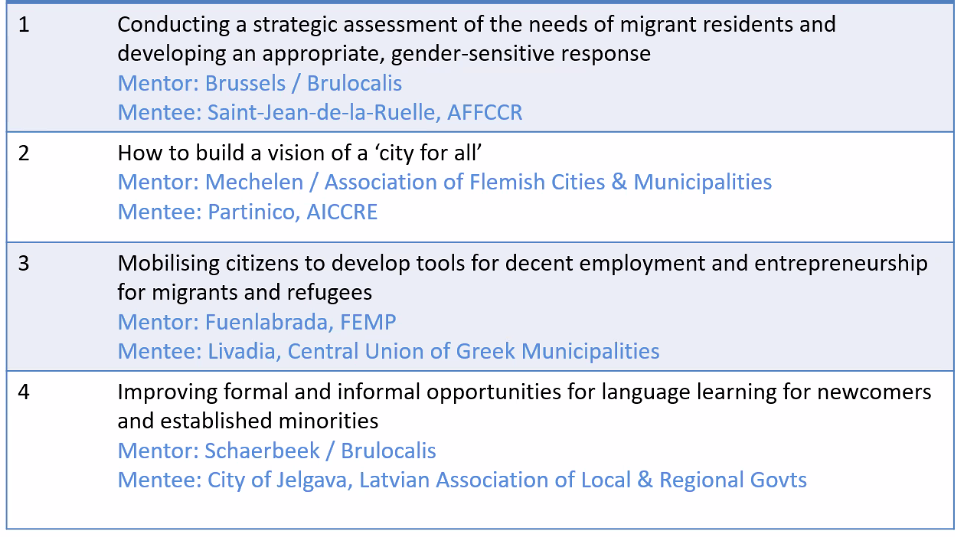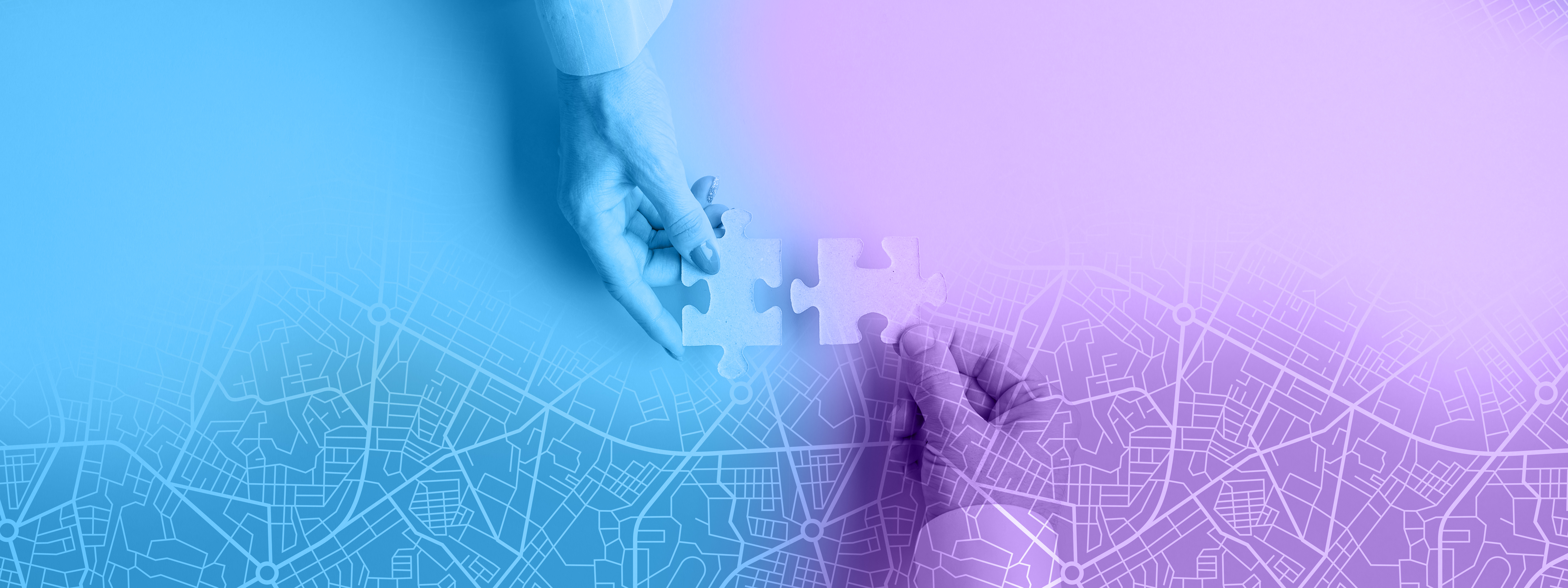State of the play and plans for the second half of the project
The IncluCities consortium, composed of the CEMR, seven local governments' associations and eight cities, got together to reflect on the first year of the project, meet the new project officer and decide about next steps and adjustments in the development of the project.
Durmish Guri, the CEMR's Project Director presented Maria Grazia Montella, who started as IncluCities Project Officer at the beginning of March.
Due to the COVID-19 related restrictions, the contact between partners and teams has been limited, and it is difficult to engage stakeholders on the ground or other members. Lack of physical meetings and face-to-face exchanges is for many the biggest challenge, also because main activities of the project, the study visits, will be held online. This was identified by participants as the main obstacle to establish the right synergies, relationship and understanding in mentoring pairs.

However, the plan and the timeline for the next year have been adjusted to take into account all the challenges. The project officer presented the five key points of the 2021 project strategy:
- Engagement of migrant’s associations and representatives, and especially pay attention to third country nationals, who are the focus of the project.
- Find a good balance between tailor-made and general framework: the partners’ actions need to be effective for their local ground, and then Migration Work will edit/modify them to make them more general and valid for other cities.
- Flexibility of the actions on the ground: don’t be afraid of finding new ways to meet the requirements/objectives.
- Associations as “service providers” for the Municipalities (supporting and accompanying): the associations are really there to support the municipalities, so the partners should try to use them as their main providers of information, services, network. They can also provide for some of the costs of the project.
- Local support groups (invite only the relevant stakeholders) could be used as a permanent consultative body for the municipality.

Migration Work, as facilitator, gave an overview of the state of the play in the mentoring process. The benchmarks have been set, the mentoring pairs organise working group meetings to prepare the study visits, taking place in May and June.
The main common steps towards the mentoring visits are: revising the mentee’s needs analysis, address information gaps about the mentee city context, set up local support groups in mentee city and matching it with peers from mentor city, identifying potential good practice in mentor city to present during the visit.
The working group meeting is important, it should really set the scope for the first visit, draft the agenda, address all the technical issues. It’s also a good moment to introduce the stakeholder groups to IncluCities and the mentoring scheme. Study visits are based on 3 half days: welcome by the mentee city and recap on key issues, input from the mentor cities, interviews from stakeholders (main element), summarise findings and try to think about, in a workshop, what that means for the action plan.
The dates for the first study visits are:
- Saint Jean de la Ruelle and the City of Brussels: 3/4 May
- Schaerbeek and Jelgava: 12/14 May
- Fuenlabrada and Levadia: 18/ 19/ 21 May
- Mechelen and Partinico: TBC
The first financial report is under way, and in line with project adjustment, there is a proposal for some budget shifts, in particular for communications and dissemination purposes.
IncluCities common communications tools, such as the project's website inclucities.eu, Twitter, YouTube and Facebook page will be used for communication and promotion purposes as well as for dissemination of the project's results and deliverables. Knowledge sharing, exchange of best practices and awareness raising are the three pillars the communication strategy is built upon. However, being still in the first phase of communication, in the adjusted communication strategy, emphasis is on production of videos and short clips to be shared on social media to boost visibility of the project and build community around IncluCities. To bridge the technical gap and insecurity in how to produce videos, VVSG and the city of Mechelen offered to share their experience and know-how with other partners.
Among social media, the focus will be on the IncluCities CEMR Facebook page, where the feature Facebook live will be used for the live stream of the IncluCities events. We are already planning online activities for the Refugee Week 2021, and for "It takes a community campaign". To celebrate the World Refugee Day (20 June) three events are foreseen on the following topics: women in the policy arena, integration and inclusion digital tools in LRGs, and the second generation migrants and political. Partners have been invited to start visiting the Facebook page and sharing it among their contacts and networks.

